Becoming a "Real" Game Master: The Game Master as Host
Becoming a Dungeon Master, Essay 2: Exploring my journey from Novice Game Master to a Master of Games
There has recently been a bit of a hubbub in the Role Playing Game social media sphere about whether a person should be giving game mastering advice if they have not read the Dungeon Masters Guide (sic)1 from cover to cover. I will answer that question in a future post in this series but I want to start from first principles before I answer that question and in process provide parts of my eventual answer to the initial question above regarding reading the DMG. Before we get there though, let me discuss what it means to be a Game Master in general. In this post, I will examine the my one experience as a gamemaster using the first of many definitions of gamemastering. Future articles will highlight me gamemastering under other definitions.
So… what is entailed in game mastering?
What Does it Mean to Be a Game Master?
This may seem like a simple answer at first. After all, the first game you Game Master is the first one where you serve as the individual "running" the game right? I'm not sure that is true. This is the kind of question that brings out my inner Hanna Pitkin. While I don’t profess to have an understanding about gamemastering that comes anywhere near to her understanding of the concept of representation, her fundamental approach to questions is one that appeals to me.
She began her exploration of representation by asking what exactly it means to represent at the most basic level. Similarly, whether or not someone has actually "Game Mastered" a game depends upon what one means by Game “Mastered.” As I see it, there are at lease four different meanings and stages of being a “Real” Game Master. These are not ranked in any normative hierarchical order, though I do think of them as happening in rough steps.
“Mere” Game Host: In this case, being a Game Master means being the person who merely hosted the game, refereed the rules, read box text, and took on the role of NPCs and monsters. Assume no frills or added value, just the basic action of being a host who referees the game.
“Entertaining” Game Master: Here being a Game Master means being the person who facilitated an entertaining narrative experience that included the above listed hosting and refereeing.
Master of the Mechanics: It could be that being a real Game Master implies that the person has a detailed understanding of the rules and advice in the rule books of the game they are running for their players?
Master of the Game: The final stage is when someone has achieved what Gary Gygax called Gaming Mastery in his books Role Playing Mastery and Master of the Game2. For Gygax, Gaming Mastery expected a Game Master to have knowledge beyond the specific game he or she was running and included a sophisticated knowledge of at minimum all the major game systems.
You can see a kind of natural progression related to the amount of time required to be at that stage. Pretty much anyone who has played a game at all can jump right in and attempt to be a Game Master at Stages 1 or 2. The mere running of a game doesn’t require a great deal of actual knowledge of the game and can be done with only the most basic understanding. The same is true of running a game in a narrative fashion. This takes more courage, and willingness to be silly, than it requires experience or knowledge. That doesn’t mean that one can’t be a better or worse Stage 1 or Stage 2 game master, as the examples I discuss below of my own journey demonstrate, which is why I don’t think of the Stages themselves as normatively better or worse ways of being a Game Master. Each Stage/Classification have within them excellent Game Masters who will provide excellent game experiences and each contains poor Game Masters. Yes, it is possible in my opinion to be a Master of the Game and be a terrible Game Master.
Over this series of essays, I will use my own journey as a Player and Game Master and provide examples of my, sometimes awkward, experiences as an inexperienced Game Master to show how I eventually transformed into a very experienced Game Master who is proficient with all the Stages. I also hope to show that I am a “Master of the Game” who has advice worth sharing.
My First Step: Game Master as Game Host
Being a Game Master means being the person who merely hosted the game, refereed the rules, read box text, and took on the role of NPCs and monsters. Assume no frills or added value, just the basic action of being a host who referees the game.
When I think of the first Step of Game Mastery, the Game Master as Game Host, two very specific game experiences come to mind where I was very much a Novice Step 1 Game Master. The first is when I co-Game Mastered a Moldvay Basic D&D adventure with my friend Sean. I discussed this experience in the first post in this series.
That post focused mostly on the how my friend Sean and I played a mash up of Broadsides and Boarding Parties and Moldvay Basic, but that's not the game we co-gamemastered. That game didn’t really have a Game Master at all. We were playing an oppositional war game and using D&D as the melee combat mechanics. Given that we role played personalities, I would argue we were role playing, but as outright competitive antagonists to one another we weren’t Game Masters any more than Necromunda, Mordheim, or Frostgrave opponents are.
The co-gamemastering experience I am talking about was discussed toward the end of that article and is when we gamemastered each other through the famous module Keep on the Borderlands.
Neither one of us had read the module cover to cover before deciding to adventure in the Keep and its environs, so our first adventure is best named "The Great Siege of Castellan Keep and Sacking of the Caves of Chaos." Sean and I rolled up a number of characters, probably around 10 each.
As a new gamer, my characters had names that ranged from the simple and uninspired (Darg) to those that almost sounded like a real name (Jamis Kelton). The sophistication of the name was largely dependent on how "balanced" the stats of the character were. The aforementioned Darg had an 18 Strength in Moldvay Basic (which is remarkably strong in that game), but had very little else to offer statistically. Thus I gave him a name worthy of his intellectual capacity.
Sean and I took those rolled up characters and began the siege of the Keep. We weren't fools. We had our characters attack at night and had the Thieves climb the walls to eliminate the guards before they could raise the alarm. Since Thieves in Moldvay Basic have an 87% chance to Climb Sheer Surfaces, most of them survived but there was one particularly disappointing result where Wendle Shadowstrike fell to his death. It was disappointing because Wendle had some of the best stats I’d ever rolled for a character, but c’est la vie in Old School D&D.
As we ran this game, we were Mere Hosts and our efforts to have life at the Keep "dynamic" were minimal. For example, the mayhem and murder our characters engaged in as they progressed from one building to the next were largely unnoticed by neighbors. Unbelievably so by any logic related to the real world. Our encounters with the store keeper weren’t role played moments of haggling over prices, they were moments when I characters jumped over the counter (yes, the store had a counter in our minds) and engaged in some brutal full Viking raid behavior. It was only after slaying all within our path in the Keep, and taking their sweet loots, we headed out into the wilderness and the caves.
It’s remarkable to me that we spent the time to learn the rumors of further adventure that the town offered, only to then attack those who gave us the information. We were very much, the baddies.
I'm quite surprised we didn’t realize beforehand that the city might be there as a place of rest and basecamp, I mean it literally says that in the module, but it didn't occur to me until a month or so later. We were 11 or 12 years old. You can’t expect that we actually read the whole module before hand can you? We wanted to play!
My second Game Master as Game Host experience was also my first “true” foray as solo Dungeon Master. Some of my middle school friends had knew that I owned a number of D&D books and asked me to run a game for them. I ended up running an all night session of AD&D for these friends at a sleepover. It was both a wonderful and terrible experience because the module we played that night was...
the Monster Manual.
I'm sure there was some bizarre narrative thread I contrived in order to try to make the encounters of the evening make any kind of sense, but I’m not sure exactly what it was. I am certain the adventure started in a Tavern, because of course it did. After that though, things get fuzzy. From what I remember, the players were guided into a series of fights wherein monsters teleported in at random or the PCs instantly transported to the monster's location to engage in life and death struggle.
The battles started small with a couple of kobolds or goblins - treasure was rolled from the tables in the back of the book - but as the sun began to peak over the Sierra Nevada Mountains the players were taking their high level Fighters and Magic-Users to battle Tiamat in her cave on the First Layer of Hell.
They won.
I remember thinking it seemed exciting at the time, but as I think back on my memory of it the whole event seems both ridiculous and dull. I can remember more the mental and physical exhaustion than any real role playing “acting” moments.
I am actually embarrassed to share the story, except for one thing. When I think about that final encounter, the the idea of a band of adventurers riding Apparatuses of Kwalish and possessing Portable Fortresses of Dearn while wielding Holy Avengers, Staves of the Magi, and the Sword of Kas as they venture into the First Layer of Hell to kill Tiamat still sounds really awesome. Awesome as the end to a ten-year campaign and not a ten-hour slumber party.
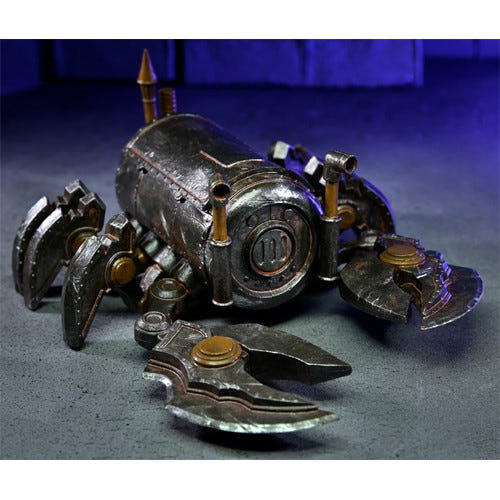
Providing Advice as a Novice
Let me return for a moment to the discussion that prompted me to write a series on my development as a Game Master, “should a person who has never read the Dungeon Masters Guide cover to cover be giving gamemastering advice?” The question could be adapted, in this particular case, to “should Christian, having only these two experiences under his belt, be trusted to give gamemastering advice?”
While there are some who might say, “No! He has nowhere near enough experience to be trusted!” I would heartily disagree. In those two experiences alone I learned a ton about what it means to be a good Game Master. One of the first things I learned in both of these situations was that I really needed to read enough of the rules to understand how they relate to one another. I especially needed to at minimum read the full adventure before running it. I was very much running the game in what GMaia calls a KUP style (aka Keep Uneducated Players). This style of play allows players to “just play” and not worry about the rules. It expands the player base and it’s a great way to grow the hobby, even as it puts a bit more burden on the Game Master in some systems. To run a KUP game, you really should know more of the rules.
The second thing I learned was the importance of some kind of structure to an adventure. This need not be a narrative structure where a Game Master plans the story beat by beat with minimal player agency, which is a style I oppose, but there should be attention paid to either the dungeon map or “option” map to provide a real basis for adventure.
I am a firm believer that the thing that makes role playing games such a valuable and unique experience is that they are is that they are “emergent storytelling” and not “enactment storytelling.” The stories created by the best role playing experiences are a result of the surprising interactions between players and Game Master, inspired by a basic structure. They are not players acting out a pseudo screenplay/novel that the Game Master has written. That said, there should be some structure and “running the Monster Manual” isn’t much of a structure.
I learned this lesson immediately during and after that session and it’s advice I could have given another person who wanted to become a Game Master. It was also GOOD advice. It’s advice I’ll still give to people and I learned in almost immediately and long before I read the Dungeon Masters Guide (sic) cover to cover. That was its own fun experience and one I want to reexperience this summer.
Concluding Thoughts
The game I ran for my middle school friends wasn't the kind of play that would have engendered long term stories and fostered life long friendships. It was a far cry from Stranger Things or Mazes and Monsters. To get to that kind of gamemastering, I had to gain experience as a game master of the second category.
Being a Game Master means being the person who facilitated an entertaining narrative experience that included the above listed hosting and refereeing.
I remember fondly my first experience of Step 2 gamemastering as a Game Master. I ran a game of DC Heroes for a group of close friends, but that story will have to wait for the next entry in the series.
Until then, I’ll just leave you with the image of middle school students returning to school on Monday after a relatively sleepless weekend that ended with a large scale battle against a five headed Dragonqueen.
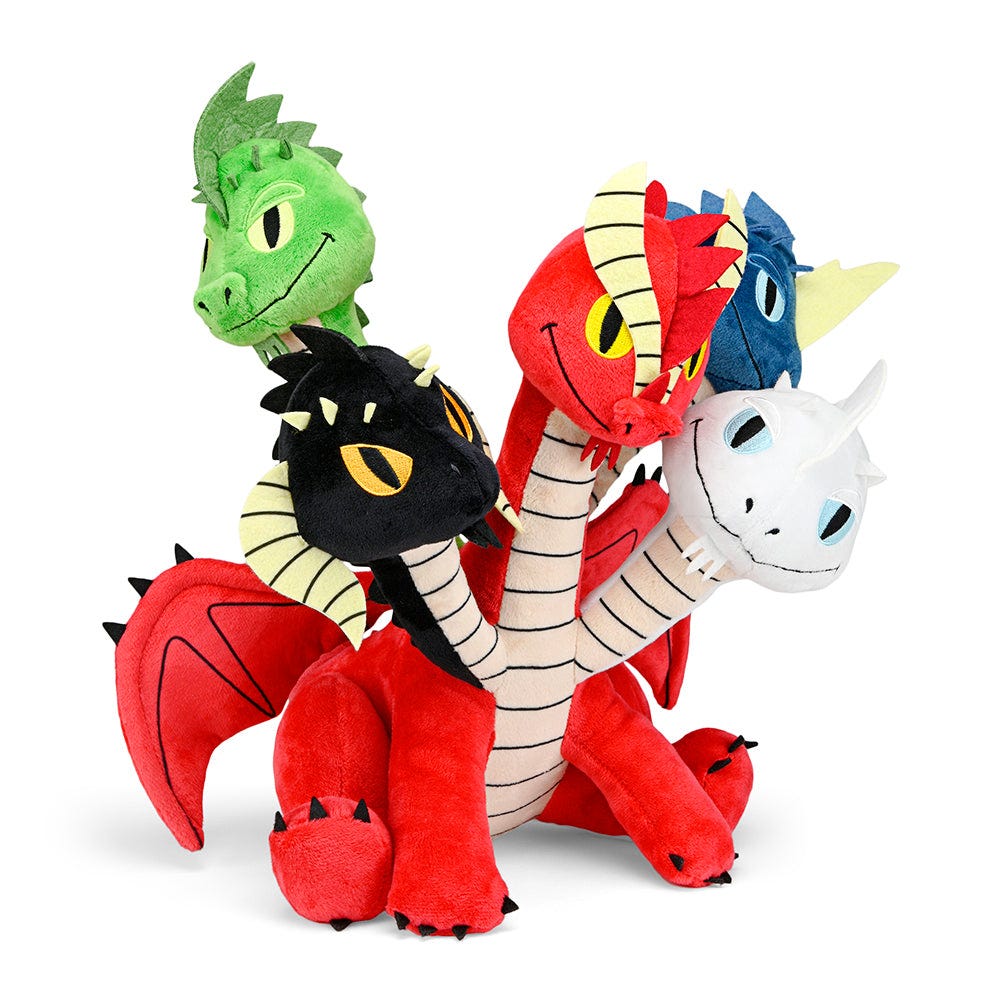
I selected the 1st Edition AD&D Dungeon Masters Guide as my reference here because it is still one of the best written collections of advice and mechanics for those who run role playing games. There are certainly a host of other products that I’d recommend as supplements, but this is the cornerstone.
As an interesting aside, I think that Matt Forbeck edited both of these volumes as one of his first jobs in the table top gaming field.



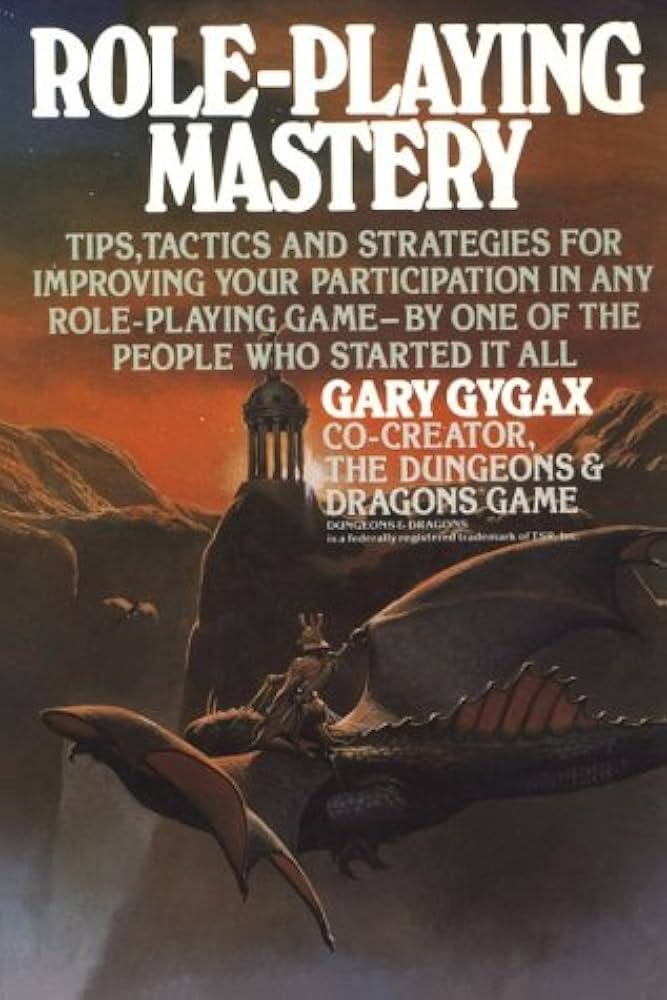
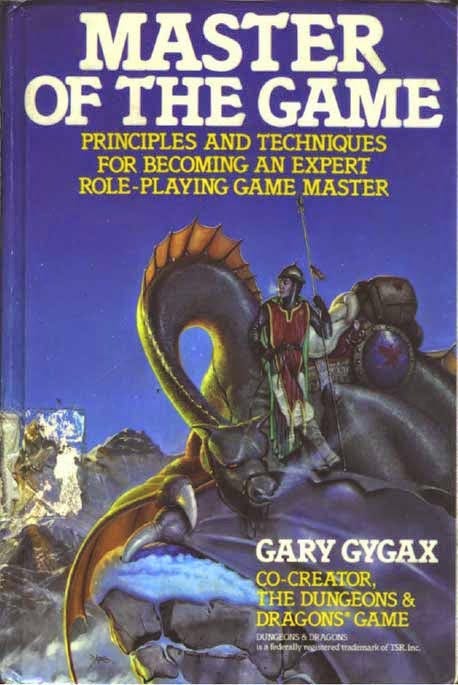


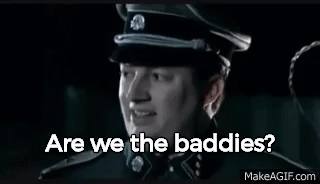

A little fun fact about the KUP: the acronym originally stood for "Keep Uneducated Players", but one of the first proofreaders pointed out that the syntax was incorrect, if I meant to suggest that players should be kept away from rules (and from rules-lawyering), I should have written "Keep players uneducated".
As it was written, KUP literally meant “keep ignorant players at the table”… and that’s not exactly what I’d call a model!
At the same time, I really loved the acronym (and the logo I had designed for it), so I decided to keep the acronym and change the underlying words to "Keep Uneducated Paradigm."
Funny, isn’t it?